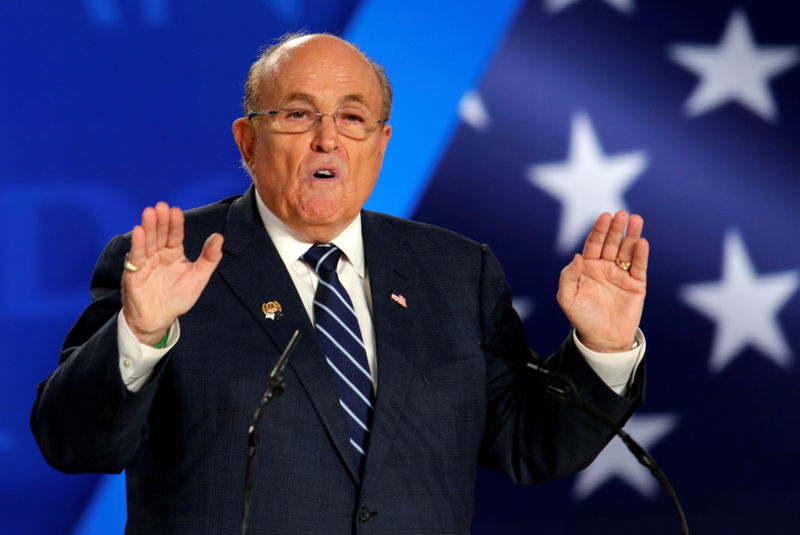By Karen Freifeld and Jan Wolfe
(Reuters) - President Donald Trump's personal lawyer Rudy Giuliani on Tuesday said he would not comply with a subpoena issued by U.S. House of Representatives Democrats seeking documents as part of their impeachment inquiry into the president.
A letter from a lawyer representing Giuliani sent to a lawyer for House leaders called the inquiry illegitimate, and said the information sought by lawmakers relating to his work in Ukraine is protected by attorney-client privilege and executive privilege. The move represents the latest effort by Trump and those close to him to refuse any cooperation with the inquiry.
"In addition, the subpoena is overbroad, unduly burdensome, and seeks documents beyond the scope of legitimate inquiry," Jon Sale, the lawyer for Giuliani, wrote.
Attorney-client privilege is a legal principle in which certain confidential communications between a lawyer and client are kept secret. Executive privilege is a legal doctrine under which a president can keep certain information from other branches of government.
The House Intelligence Committee had demanded that Giuliani hand over by Tuesday documents related to Trump's effort to pressure Ukrainian President Volodymyr Zelenskiy to investigate Joe Biden, a top contender for the Democratic nomination to run against Trump in the 2020 election.
Tuesday's letter could prompt House Democrats to file a lawsuit intended to force Giuliani to comply with the subpoena.
Sale said Giuliani was adopting arguments made by Pat Cipollone, the top White House lawyer, in an Oct. 8 letter to House Speaker Nancy Pelosi, the top Democrat in Congress.
In that letter, Cipollone said the House impeachment inquiry was constitutionally invalid and denied Trump basic due process rights, such as the ability to cross-examine witnesses, call witnesses to testify, receive transcripts of testimony, and have access to evidence.
Many legal experts have rejected Cipollone and Giuliani's arguments that the impeachment investigation is unconstitutional. Impeachment lawyers have said the House has broad authority to set the ground rules for an inquiry under the U.S. Constitution.
The House Intelligence Committee on Sept. 30 issued the subpoena in consultation with two other House panels.

The three committees did not immediately respond to a request for comment.